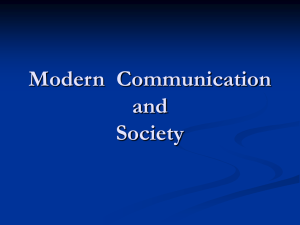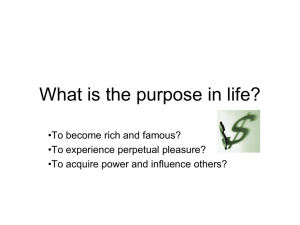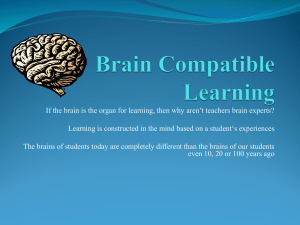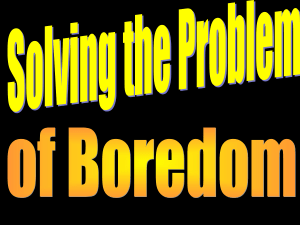Abstract: Divine Boredom
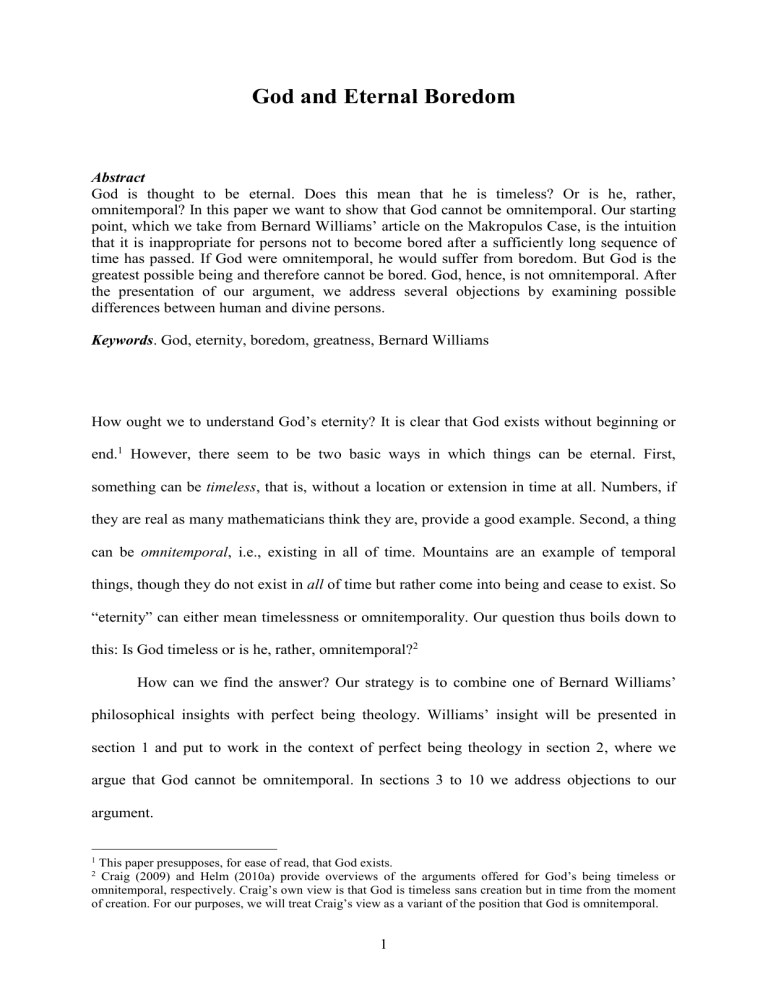
God and Eternal Boredom
Abstract
God is thought to be eternal. Does this mean that he is timeless? Or is he, rather, omnitemporal? In this paper we want to show that God cannot be omnitemporal. Our starting point, which we take from Bernard Williams’ article on the Makropulos Case, is the intuition that it is inappropriate for persons not to become bored after a sufficiently long sequence of time has passed. If God were omnitemporal, he would suffer from boredom. But God is the greatest possible being and therefore cannot be bored. God, hence, is not omnitemporal. After the presentation of our argument, we address several objections by examining possible differences between human and divine persons.
Keywords . God, eternity, boredom, greatness, Bernard Williams
How ought we to understand God’s eternity? It is clear that God exists without beginning or end.
1
However, there seem to be two basic ways in which things can be eternal. First, something can be timeless , that is, without a location or extension in time at all. Numbers, if they are real as many mathematicians think they are, provide a good example. Second, a thing can be omnitemporal , i.e., existing in all of time. Mountains are an example of temporal things, though they do not exist in all of time but rather come into being and cease to exist. So
“eternity” can either mean timelessness or omnitemporality. Our question thus boils down to this: Is God timeless or is he, rather, omnitemporal?
2
How can we find the answer? Our strategy is to combine one of Bernard Williams’ philosophical insights with perfect being theology. Williams’ insight will be presented in section 1 and put to work in the context of perfect being theology in section 2, where we argue that God cannot be omnitemporal. In sections 3 to 10 we address objections to our argument.
1 This paper presupposes, for ease of read, that God exists.
2 Craig (2009) and Helm (2010a) provide overviews of the arguments offered for God’s being timeless or omnitemporal, respectively. Craig’s own view is that God is timeless sans creation but in time from the moment of creation. For our purposes, we will treat Craig’s view as a variant of the position that God is omnitemporal.
1
1. The Basic Intuition
Picture yourself – as vividly as possible – as living forever. Wouldn’t it be wonderful to enjoy all the goods life offers, such as exotic food, love, and philosophy, in all eternity? Many people, and we count ourselves among them, do not think so. They find an eternal life undesirable. There just does not seem to be any activity, or complex of activities, that one would like to continue not just for one hundred, one thousand, or even a billion of years… but forever.
When we imagine ourselves to be immortal, it seems that at some point boredom would set in. And boredom apparently would not only be a contingent psychological reaction an immortal person might display or not. Rather, it seems that in the very long run, experiencing and doing things become worthless from a personal point of view. At this point, boredom seems to be the appropriate attitude towards one’s never-ending existence. It would be inappropriate – a display of irrationality – never to become sick of it all.
The thought experiment of picturing oneself as living forever supports
Basic Intuition
It is inappropriate for persons not to become bored after a sufficiently long sequence of time has passed.
We will not say more in support of Basic Intuition
. After all, it’s an intuition, and it is basic.
However, we will elaborate on the Basic Intuition by clarifying some complications Bernard
Williams has pointed out. In the next section, then, we will apply Basic Intuition to God.
We take it that Williams has argued for something like Basic Intuition in his famous article on the Makropulos Case.
3 Williams (1973: 89) said that “[i]mmortality, or a state
3 As Williams (1973: 95) puts it: “boredom … would be … a reaction almost perceptual in character to the poverty of one’s relation to the environment.” And he goes on to say that one who is not bored but given her
2
without death, would be meaningless”, and that “in a sense, death gives the meaning to life.”
Williams (Ibid: 90) holds this view on ground of the thought that, if an immortal person has a certain character, then every possible meaningful thing that could happen to this person will have happened after a while. The “character” a person has is, on Williams’ (Ibid: 85-6; cf.
1981a: 13) view, constituted by the person’s “categorical desires.” These are desires that are not conditional on the agent’s staying alive. Instead, they are what determine whether one should keep on living by giving one reasons to live, namely, in order to engage in certain projects and personal relations. In the course of an endless existence, however, it is inevitable that one’s categorical desires become permanently satisfied. At this point the immortal’s existence looses its meaning and boredom will set in as an appropriate reaction to his situation.
Williams’ argument is best represented in the form of a dilemma. Either the envisioned immortal life consists of an infinite sequence of character shifts, of periods characterized by significant differences in personality, interests etc. Or the life is one constituted by a stable character. The former option Williams rules out as not being something that an individual can rationally look forward to. We call this the “character-horn” of the dilemma. The second option will, according to Williams, lead to repetitive monotony: the immortal will continue repeating the same set of experiences, as her character, which determines what experiences are worth for her to live through, will remain constant. In this way sooner or later she will permanently satisfy all her categorical desires, leaving her in a state of boredom and meaningless existence; in short, without any reason to continue living.
We call this the “boredom-horn” of the dilemma. Immortality, Williams concludes, is not a rationally desirable option contrary, perhaps, to appearance. situation should be permanently bored, would become permanently bored were she to reflect more upon her situation.
3
Of course, there are several objections one might raise at this point. We will consider many objections in the remaining sections. However, what we take to be plausible here, at least at first glance, is Basic Intuition and the claim that you can avoid boredom by character shifts. In a slogan: immortality leads to boredom unless you are irrational or change your character.
2. The Argument
We can now state our argument:
(1) God is the greatest possible being.
(2) If God were omnitemporal, then he would be bored.
(3) The greatest possible being is not bored.
(4) Therefore, God is not omnitemporal.
Our argument is based on perfect being theology. This commitment becomes apparent in premises (1) and (3). Premise (2) is an application of Basic Intuition . We will comment on both aspects in this section and then address objections in the remainder of this article.
Perfect being theology is a discipline that deduces God’s essential properties from the assumption that God is the maximally great being.
4 We assume that in order to determine whether a certain feature f is an essential property of God, we must ask whether the maximally great being necessarily has f . Of course, some great-making properties could be incompatible so that even the greatest possible being could not have all such properties.
Another complication is that some incompatible properties (or sets thereof) could be greatmaking to different degrees. Also, whether and, if so, how great-making a property is could
4 For roots, rationales, and problems of perfect being theology, see Webb (2010) and Leftow (2011).
4
depend on several contextual features. These complications notwithstanding, God, as the maximally great being, must have a set of properties the possession of which is all things considered maximally great-making (in the sense of being at least as great-making as any alternative set of properties a being can possess). In order not to clutter the exposition, we assume in what follows that there is exactly one such set of properties and we use “greatmaking property” to refer to any member of this set.
Perfect being theology implies, we further assume, that omniscience, omnipotence, moral perfection, and personhood are great-making properties.
5
For our purposes, though, the crucial question is if the greatest possible being can be bored. If it can, then premise (3) is false and our argument fails.
A necessary condition for boredom being a threat to God is that God is personal. This feature of God is also assumed to be deducible by perfect being theology. With the doctrine of the trinity in mind, we prefer to say “personal” rather than “a person” because we do not want to exclude the possibility that God is more than one person. We take it that a person has a mind (with beliefs, desires, emotions, and so on). God, hence, has at least one mind.
There are two reasons for thinking that premise (3) is true. First, it intuitively just seems to be true that the greatest possible being cannot be bored. Of course, we have introduced the concept of a set of properties the possession of which is all things considered maximally great making and such a set may in principle contain properties that make someone pro tanto less great than he would be without these properties. However, it may well seem at this point that what we said above needs some qualification: there seem to be properties – and persistent existential boredom is certainly a candidate for such a property – that intuitively a greatest possible being can hardly possess. So apart from the overall balance
5 On omniscience, see Mavrodes (2010); on omnipotence, see Webb (2010): 230–1; on God’s goodness, see
Helm (2010b). Later we will add immutability to this list and consider this property in more detail.
5
of properties a person must or must not have in order to be maximally great, there seem to exist restrictions on the kind of properties the person may have.
The second reason to believe that (3) is true hinges on comparisons. A timeless, omniscient, omnipotent, and morally perfect personal being seems to be greater than an omnitemporal, omniscient, omnipotent, and morally perfect personal being, if the latter suffers from boredom (which the first, of course, would not). This suggests that timelessness is a great-making feature and God must be timeless. However, it has often been argued that
God cannot exist in a timeless mode (e.g. McCormick 2003). If this is true, one might object, then God would have to be omnitemporal after all. This objection fails, though, because the assumption that God cannot be timeless casts doubt on perfect being theology in the first place. For it seems essential to our idea of God that he merits worship. But he hardly would, we submit, if he were significantly bored. A personal being who suffers from boredom is a proper object of pity, not of worship. The God of personal being theology, if he can neither exist outside of time nor in time without being bored, does not exist. There could still be a maximally great being. But this being, if it were omnitemporal, would not be personal; for otherwise it would be bored.
Let us turn to premise (2). Basic Intuition gives us reason to believe that it is inappropriate for persons not to become bored after a sufficiently long sequence of time has passed. Since God is a perfectly rational personal being, he has all the attitudes it is inappropriate for persons not to have. And if God is omnitemporal, then a sufficiently long sequence of time (in the sense of Basic Intuition ) has passed for him.
6
Therefore, an omnitemporal God would be bored.
6 Notice that our argument also pertains to Craig’s view that God is timeless without creation but omnitemporal
with creation (see footnote 2). For even if boredom may not
yet be rationally inescapable for God, it will become rationally inescapable at some point. Our argument does not require that an infinite sequence of time has passed, but only a sufficiently long sequence of time.
6
We can put flesh on the bones of premise (2) by imagining how it must be for God to face eternity. We think of creating and sustaining worlds and making and saving souls as fascinating activities. But doing these things in all eternity?! Whatever plans God has, whatever drives him – since God is a personal being, omnitemporality must be a threat to him.
In the next section, we deal with the charge that we anthropomorphize God and, therefore, our argument is a non-starter. Section 4 discusses the character-horn of Williams’ dilemma and aims to show that God has a fixed set of categorical desires. Sections 5 to 9 concern the boredom-horn of Williams’ dilemma: we argue that none of God’s categorical desires will prevent him from suffering from boredom if he knows the future and is omnitemporal. Finally, in section 10 we show that, while divine ignorance could be a way for
God to escape boredom, this solution comes with high theoretical costs.
3. A Category Mistake?
A natural way to spell out the charge that we anthropomorphize God is to accuse us of making a category mistake. “Having a boring existence” as well as “avoiding boredom” are categories for humans with their psychological shortcomings but these categories do not apply to God because God is maximally great and thus has a perfect psychology.
Proponents of the objection, however, need to say more than this. We share Williams’ intuition that rational persons cannot – on pain of endless character shifts – avoid boredom in an omnitemporal existence. The objection simply denies this general claim when it comes to
God, pointing to his perfect psychology. But appeal to God’s being the greatest possible being, will not do. We accept that God is the greatest possible being and has a perfect psychology. The dialectical situation is such that we argue for this very reason that God will be timeless rather than forever bored. Recall that according to Basic Intuition it seems appropriate to be bored when a sufficiently long sequence of time has passed.
7
To see what is wrong with insisting that God, in virtue of his being maximally great, can be omnitemporal without being bored consider the following analogy. Some passages in the Old Testament seem to say that God commanded his people to commit atrocities such as genocide. Whatever the right reaction to these passages might be, it certainly is not reasonable to accept these atrocities as being justified ( pace Craig 2007). But someone who does exactly this could try to argue that, since God commanded those atrocities and God is morally perfect, the genocide was right and even obligatory. This argument, however, would be circular in a dangerous way. Rather than letting our well-reflected moral judgements determine which actions can be attributed to God because they are consistent with God’s moral perfection, and which cannot, this argument leads us to give up our well-reflected moral judgements without offering any moral considerations to this effect. Such an argument bears witness to a blind, unreasonable faith.
This analogy suggests that we should take seriously our well-reflected normative intuitions when determining God’s features rather than presuppose some (non-essential) features of God and adapt our intuitions or restrict their scope accordingly. Our judgement that it is appropriate for omnitemporal agents to suffer from boredom rests on well-reflected intuitions. This judgement enables us to put forward an argument for God’s being timeless rather than omnitemporal. To say that God cannot be bored simply because he is the greatest possible being, is as unreasonable as saying that genocide commanded by God would not be wrong (or would not be genocide) simply because it is commanded by God. We should not limit the scope of our judgement that it is appropriate for omnitemporal agents to suffer from boredom as long as we do not hear arguments that concern the very subject matter for the limitation, that is, arguments dealing with the appropriateness of attitudes of agents who fact eternity.
8
4. Why God Has a Fixed Character
With the objection that our argument is a non-starter out of the way, we can now turn to the character-horn of Williams’ dilemma. In the human case one can legitimately inquire why
Williams rules out an immortal whose character continuously changes in the course of her endless existence (cf. Perrett 1986, though). However, such inquiry could appear selfcontradictory in God’s case. For God has often been considered to be immutable in the sense that he is not amenable to change with respect to any of his non-relational properties.
Consequently, the claim that God’s character changes in order to avoid the first horn of
Williams’ dilemma seems to be ruled out because God is unchangeable.
However, this conclusion is too quick. It is often pointed out that an omnitemporal and omniscient God cannot be immutable, given that certain of his beliefs, namely those that contain temporal indexicals, change with time.
7
To give an example, the proposition
It is raining now is only true at the time when it is raining, namely now, hence the only time a God who exists in time can know this proposition is now. That is, he can neither have foreknowledge nor memory of this particular proposition, nor of any other similarly indexical proposition. This does not mean that God is not omniscient. God still knows all true propositions at every point in time and believes no false ones. However, the existence of propositions with temporal indexicals does pose a threat to God’s immutability. For he literally has to change his mind, i.e. his beliefs, in order to gain knowledge of these propositions. Also, this change in beliefs might well bring along changes in intention and emotion. Hence, it seems, it is far from obvious that immutability is an essential attribute of God.
7 For a detailed discussion of such ‘omniscient-immutability’ arguments see Gale (1986) and (1991: Chapter 3).
9
There is a good way to handle this problem. It is to distinguish loose and strict immutability. Unlike the latter, the former is compatible with God’s having changing beliefs; what it maintains is that God’s character does not change, the idea being that strict immutability is a natural attribute of a timeless God, but is unnecessarily demanding of an omnitemporal God (cf. Gale 1986: 332–3; 1991: 94–7). The character of a person, to repeat, is, according to Williams, constituted by her categorical desires, which are not conditional on her staying alive but which give her reasons to live in order to engage in projects and personal relationships. Loose immutability, we submit, is an essential property of an omnitemporal
God. And God’s having loose immutability is sufficient for ruling out character changes.
Why would an omnitemporal and omniscient God’s character not be affected by his changing beliefs? Firstly, one can argue that loose immutability is a great-making property.
After all, immutability often figures on lists of God’s essential properties and this seems plausible. Secondly, changes in God’s beliefs are not fit to effect character changes in the first place. Since God is assumed to know the future, he has foreknowledge about which temporally indexed propositions he will know (cf. Neri-Castañeda 1967). There will thus be no surprises or insights for God that would give him reason to adapt his categorical desires.
To illustrate, God has known at every point in time prior to 2014 that
God will know in 2014 that it is now 2014.
So God’s knowledge that it is now 2014 came as no surprise to him. Of course, God can also acquire knowledge of propositions that prompt changes in his intentions and emotions, such as
If I intervene now, the results will be optimal
10
or
I am being blasphemed by Richard right now.
But being omniscient, he always knew that things would go this way and therefore has no reason to change his categorical desires (or whatever may be the building blocks of his character). So the upshot is that the changes God’s beliefs undergo do not affect his character.
5. Desire Classifications
Let us then come to the boredom-horn of Williams’ dilemma. In order to avoid it, one could accept Williams’ conception of categorical reasons and argue that God’s categorical desires, in contrast to humans’ desires, will not become satisfied. How can one show this? Three basic ways come to mind. First, if God has a fixed set of categorical desires with infinitely many members, one can argue that even eternity will not be enough to permanently satisfy all these desires. Second, the content of a desire can render the desire forever unsatisfiable. The desire expressed by the phrase “I want to exist at every point of time” provides a good example.
Third, there may be desires that can be infinitely often satisfied. Suppose that Adam wants to listen to music and fulfils this desire. At some later point, he wants to listen to music again.
Arguably, in this example Adam possesses only one desire to listen to music which becomes satisfied only temporally and cannot be fulfilled permanently but reappears in his consciousness regularly.
Whether these three ways to avoid the boredom-horn collapse into one or two depends on how one individuates desires. We will not address this issue. We also grant that, as they stand, it is at least conceivable that these scenarios disarm Williams’ challenge in the human
11
case.
8 What we deny is that they can serve as a response in God’s case. To show this, we employ a categorisation of desires that is based on the contents of desires. We distinguish self-regarding, other-regarding, and impersonal desires. A desire is self-regarding if it is about the desirer. A person who wants to eat an apple has a self-regarding desire: the person wants that she eats an apple. A desire is other-regarding if it is about people other than the desirer. If
Eve wants Adam to eat an apple, she has an other-regarding desire. Impersonal desires are neither about the desirer nor about other people. If Eve wants that there be an apple tree in the garden, then she has an impersonal desire.
9
In the next sections, we will show that none of the three types of categorical desires will help God to avoid boredom. Since our classification of desires is exhaustive, we conclude that an omnitemporal God would be bored.
6. Self-Regarding Desires
How could self-regarding desires help God to avoid boredom? A natural suggestion is that self-regarding desires are about something which is good for God or make something good for him. Consider the three suggested ways to avoid boredom. A first way would be for God to have infinitely many desires about himself. Secondly, an unsatisfiable desire, such as expressed in the sentence “I want to exist forever” (if there is an infinite amount of time to come) or the aspiration for a personal ideal that cannot be achieved, could help God to avoid boredom. Thirdly, desires which are infinitely often satisfiable – as might be, in the human
8 One might think that the first scenario, that of God’s having a fixed set of desires with infinitely many members, is a non-starter because a being with such a set of desires cannot have a character. First, it seems that the distinction between acting out of character and acting in character is built into the idea of character. A being who, at any point of time, has an infinite number of desires might not seem to fit this picture: everything this being does would count as acting in character; or so it might seem. Second, one could argue that the idea of having a character involves that one simply cannot do certain things and must do others, as Williams (1981c) and, interpreting him, Gay (1989) suggest. However, the first argument confuses “infinite number of desires” with “every possible desire”, whereas the second idea would be incompatible with God’s omnipotence.
9 There are some technical problems one has to solve if one wants to give precise definitions of these three kinds of desire. However, for our purposes it is sufficient that the reader gets the main thrust of our system of classification.
12
case, the desire for eating lobsters or the desire to play musical instruments – would prevent boredom.
10
Self-regarding desires do not prevent divine boredom for the following reason. Notice, as a starting point, that God is not any old person, but the supreme being. Desires for trivial affairs cannot constitute his character, they cannot be essential to his personality, because this would not fit God’s greatness. This is why desires for God to have pleasurable experiences, like eating lobsters, desires like the one expressed with “I want to exist forever”, or desires for playing musical instruments cannot function as categorical desires in God’s case. Even some extraordinary desires, such as creating and sustaining worlds, do not seem appropriate to play the role of a categorical desire in God’s case.
This is not to say that all self-regarding desires are trivial. Desires to strive after personal ideals, like knowledge or virtue, are self-regarding but would be non-trivial.
However, such non-trivial self-regarding desires are not available to God because he already possesses all perfections. There is nothing God could aspire to in these regards.
Have we overlooked a candidate desire? At this point we want to address what is probably the most important objection concerning the boredom horn: the suggestion that God delights in himself. God is the most perfect, supreme, complete being; hence, so the suggestion goes, his eternal life is spent in apprehension of this inexhaustible goodness and greatness. To put it in Williams’ language, God’s love of himself is a desire that is non-trivial, while being also unsatisfiable, and therefore a life based on it is immune to the threat of boredom.
Notice that this objection does not presuppose the acceptance of Williams’ claim that categorical desires constitute character. One could rephrase it by simply saying that an
10 On the first idea see John Martin Fischer (1994: 262–7); on the second see Wisnewski (2005: 33-6).
13
omnitemporal God would not be bored because God has an unlimited source of meaning and joy: himself.
There are some points that are unclear about this proposal, such as that God, being what he is, really needs an infinite amount of time to apprehend even infinite values. But we let this go.
11
The real problem with this approach lies in the motivational picture that it paints of God. On this picture, what God delights in is himself, and not his deeds, not what he gets done and so on. In other words, God has a second-order reflexive attitude towards his own image as someone who is perfect, great, complete and so on, instead of having a second-order attitude towards his own first-order projects, of all the good deeds and so on that he has done.
Williams’ (1976: 314) words, concerning moral self-indulgence with respect to generosity, well describe what is problematic about this picture:
“[…] he is concerned with his own generosity, where this implies that he has substituted for a thought about what is needed, a thought which focuses disproportionately upon the expression of his own disposition, and that he derives pleasure from the thought that his disposition will have been expressed – rather than deriving pleasure, as the agent who is not self-indulgent may, from the thought of how things will be if he acts in a certain way, that way being (though he need not think this) the expression of his disposition.”
Moral self-indulgence, however, is a vice, a character trait that a morally perfect being cannot possess. Therefore, we conclude, even if God’s eternal love of himself would help him avoid boredom, this is a motive that he cannot have.
Still, a critic might say, Williams’ point applies to humans, not to God, as it is appropriate for God to delight in himself. After all, God is himself inexhaustibly good and great and hence he is such that it is appropriate, also for himself, to delight in.
11 For some considerations on this topic see Metz (2003: 165–7).
14
However, we have seen in section 3 that we should take our well-considered normative judgements seriously. Now, what is wrong with the claim that it is appropriate for
God to delight in himself? Take a decent human person, Chris, who has many virtues and is admirable in several respects because, say, he is a great artist as well as a brave politician. Let us assume that Chris is unique among his contemporaries when it comes to goodness and greatness. Several positive attitudes towards Chris seem appropriate: we should praise him and it also seems appropriate for other people to delight in Chris. However, it would be an unfortunate aspect of Chris were he himself to indulge in his extraordinary qualities.
How is God different from Chris? God is maximally great, whereas Chris has significant shortcomings (at least when compared to God). However, since it seems inappropriate for someone like Chris to be self-indulgent, despite his virtues and other greatmaking features, we have reason to believe that it is morally better not to delight in one’s advantages and merits, even if they are extraordinary. We see no reason to make an exception from this principle when it comes to God.
The bottom line is that God’s self-regarding desires will not save him from boredom because they are too trivial. God cannot have non-trivial aspirations for perfections, as he is perfect. At the same time, an appetite for his own greatness would be vicious and thus at odds with his moral perfection.
7. The Trinitarian Objection
If God is a person, he cannot enjoy his own greatness in eternity. However, let us consider a follow-up proposal that is based on an interpretation of the doctrine of the trinity. Trinity monotheism, as William Lane Craig and J. P. Moreland label their position, claims that (Craig
2006: 101; cf. Craig & Moreland 2003):
15
“God is an immaterial substance or soul endowed with three sets of cognitive faculties each of which is sufficient for personhood, so that God has three centers of self-consciousness, intentionality, and will.”
Proponents of trinity monotheism could argue that each divine person’s delight is derived from the presence of the other two persons. “Life so conceived”, says Craig (1998: 117), “is not only not boring, it is enthralling.” Since none of the persons takes delight in himself, there is nothing repugnant about the proposal. God can eternally love himself without showing moral self-indulgence.
Notice that there are two principal ways in which the trinitarian objection can be spelled out. The first suggestion is that each divine person enjoys the interpersonal relationships with the other two divine persons. Another suggestion is that each divine person takes delight in the trinity of divine persons, as the trinity is God.
However, neither of these ideas works. Notice that, on trinity monotheism, God is not identical to any of the divine persons but to the trinity of divine persons. It is for this reason that trinity monotheism avoids the charge of polytheism: there are three distinct divine persons but none of them is a god. However, this claim renders untenable the suggestion that each divine person enjoys the interpersonal relationships with the other divine persons in a way that prevents boredom: since none of the divine persons is identical to God, none of them has inexhaustible greatness, which however would be necessary in order to function as an eternal source of meaning and joy for the other divine persons. Hence this solution is a nonstarter.
Let us come to the second idea. Notice that each of the divine persons is a constitutive part of the trinity alias God. On the second idea, the divine persons spend an omnitemporal existence in apprehension of the inexhaustible goodness and greatness of a tripersonal being they themselves are a constitutive part of. The constellation seems comparable to individuals’
16
being members of groups with merits and qualities that go beyond the individuals’ merits and qualities. An analogue to a divine person is the member of a charity.
The problem with the second idea is that the charge of moral self-indulgence reemerges. Although none of the divine persons would think something like “I delight in myself”, it seems that a thought along the lines of “I delight in us” can properly be ascribed to each divine person. But neither perfectly virtuous charity members nor perfectly virtuous divine persons would have such a thought. Charity members display humility and are therefore more virtuous if they derive pleasure only from the good results the charity achieves rather than also from the greatness of their charity. This suggests that the divine persons would have a vice, which can be best described as a kind of collective self-indulgence , if they are delighted in the greatness of the trinity. As a result, the trinitarian objection fails.
8. Other-Regarding Desires
How could other-regarding desires help God to escape boredom? We have said that we think of creating and saving souls as fascinating activities as long as they are not pursued forever.
One could object that the desire to create and save souls is unsatisfiable because there is no largest number of souls God could create and save. Let us grant this. Even so, we have a serious worry concerning the viability of other-regarding desires as vehicles to avoid boredom. If the active, impertinent pursuit of good outcomes is the only way for God to avoid boredom (as we argue in the previous and the next section), this would eventually crowd out other activities, pursuits and character traits of God, leaving him merely with the pursuit of optimal outcomes and devoid of a colourful character. In short, God would be a true moral saint, with all the problems moral saints face (cf. Wolf 1982).
There might be a way out, though. It is to grant that these desires are permanently satisfiable, hence that creating and saving souls sooner or later becomes boring for God, but
17
point out that he still would have moral reason to continue these activities. The general idea is that an agent can continue his life for the sake of other persons, although he might have no self-interest in doing so or might even be better off dead. This agent – God – has moral reason to embrace eternity. Call this the argument from self-sacrifice.
As further support, it can be added to this that living a moral life brings meaning to that life. Since, moreover, the meaning of a life is typically considered as a positive final value, a property that is desirable for its own sake (Metz 2007), there seems to be another strong reason for God to maintain an endless boredom-filled existence.
The objection from self-sacrifice brings to the fore further assumptions behind
Williams’ dilemma. For Williams would certainly deny that humans – and, by extension, God
– can escape his dilemma in this way. His dilemma is premised on his claim that all reasons are internal, being based on the agent’s desires (in a suitably broad sense of desire; see
Williams 1981b). Moral desires would be no different and hence no exception to his argumentation: they too would be permanently satisfied in an infinitely long existence. Hence, according to Williams, there would be no moral reason to choose an immortal life. There would, furthermore, be no other point to an infinitely long moral existence either, according to Williams (1973: 95–6). The meaning of a life has to do with the projects – categorical desires – in it. When all these projects are completed, when all the categorical desires are permanently satisfied, no meaning pertains to the life any more. Hence, if we follow
Williams, the meaning of his life cannot be what gives God reason to continue his existence either – since there would be no such meaning in his life when stretched to infinity.
12
Of course, one can question these assumptions: both the theory of internal reasons and the theory of the meaning of life that we attributed to Williams can be disputed. However, engaging with these separate debates goes beyond the scope of this paper. Nevertheless, for
12 Contra Bortolotti & Nagasawa (2009): they hold that Williams’ account of the meaning of life has to do with the phenomenology of boredom and criticizes him on this ground.
18
the sake of further illumination, let us set aside Williams’ background assumptions for the moment. Even so, the objection from self-sacrifice is not persuasive when it comes to God for considerations that do not concern moral reasons or the meaning of life, but well-being. In our examination of God’s eternity, we are concerned with a comparison of God’s greatness in an omnitemporal mode of existence with his greatness in a timeless mode of existence. Even if
God’s omnitemporal existence would be meaningful in virtue of his morally desirable selfsacrifice, it would be better for God to be timeless. And doing well seems to be a greatmaking property. Hence, the timeless God would be greater.
In his omnitemporal mode of existence God could properly be called a tragic hero: he would be suffering debilitating boredom for the sake of morality. Due to his heroism, he would be a proper object of admiration. But the tragic aspect would render him pitiful . Being worthy of pity does not seem to fit God’s being the proper object of worship. Since God’s being the greatest possible being and his being worthy of worship go hand in hand, this thought further strengthens the rejection of the argument from self-sacrifice.
In sum, independently of whether the assumptions behind Williams’ dilemma are viable, the argument from self-sacrifice does not help God to escape the dilemma. For it is not only having a meaningful life that classifies as a great-making property; doing well is a greatmaking property, too. And a morally perfect omnitemporal person would lack this property.
Hence other-regarding desires do not help God when it comes to boredom.
9. Impersonal Desires
The category of impersonal desires covers all the desires which are neither self-regarding nor other-regarding. However, it is hard to find examples of impersonal desires in God’s case.
Desires with moral content are not impersonal because (at least) moral agents figure in them.
Maybe the following works: the desire “that there is an eternal world” (or “that there is an
19
infinite sequence of worlds” or “that there is an infinite sequence of worlds that realise natural aesthetic values”) – with neither “God’s creating the world” nor “humans inhabiting the world” entering the content of the desire.
There are at least two problems with this proposal. First, traditionally God is believed to care about us. This does not fit with the suggestion that God’s reason for existing is provided by his categorical desire “that there is a world” rather than “that there is a world for the sake of humans” (or “that there is beauty” rather than “that there is beauty to be enjoyed by someone”). We do not play a sufficiently important role in the picture of God as proposed here.
Second, the triviality problem, which we encountered in the context of self-regarding desires, reappears. Why should it matter, on an existential scale, whether there is a world, even if it has aesthetic value in it, as long as it does not benefit anyone? (If the desire were about a world that benefitted God or other beings, it would not be impersonal.) Why should the supreme being care? Whether there is a world seems, by itself, an issue too trivial to provide the relevant impetus for God’s existence, given what God is necessarily like.
This concludes our elaborations on the boredom-horn of Williams’ dilemma. Neither self-regarding nor other-regarding nor impersonal desires provide a way for God to avoid boredom. We conclude that an omnitemporal God would be bored.
10. Divine Ignorance
In this section we will present an objection that we will not rebut for lack of space. The objection presupposes a very controversial theory. If the theory is true, our argument might fail. But since the theory is very controversial, it is not a big problem that we react with a caveat rather than full-fledged defence of our argument.
20
The theory we have in mind is Open Theism, according to which God does not know the future. Open Theists assume a libertarian theory of free will and hold that God is omnitemporal and cannot know the future because humans have libertarian free will.
13
If
Open Theism is correct, our argument might fail. For several authors have argued that cognitive limitations provide a way to avoid boredom for immortal humans.
14
These proposals become relevant if God does not know the future and thus has cognitive limitations.
How can such a proposal work? With respect to self-regarding desires, we distinguished between trivial and non-trivial desires. Only non-trivial desires have a content that is intuitively apt to function in the existence-maintaining role for a being like God. The problem with non-trivial desires was that God, since he is perfect, cannot improve himself.
However, if God does not know the future, then he can improve. Having knowledge is a great-making feature and the more God knows, the greater he becomes. The desire for knowledge is thus an appropriate way for God to avoid boredom.
There are several problems with Open Theism – apart from its conflict with some passages of the Holy Scriptures. For example, it is hard to draw the conclusion that God does not know the future from the assumption that humans have libertarian free will. Moreover, it is natural, at this point, to worry whether God would be omniscient if he did not know the future.
15
Furthermore, if God does not know in advance what humans will do, this has some impact on his control of human history. He could not choose outcomes but only lotteries of outcomes. In contrast, in a timeless mode of existence God is not dependent on lotteries but
13 The main rivals of Open Theism are the view that God has simple foreknowledge and Molinism. Molinists and proponents of the simple foreknowledge view hold that God does know the future. The competing theories of
God’s providence are discussed in Boyd et al. (2011).
14 See, in particular, the case of open-ended desires in Levy (2005: 184-5). Wisnewski’s (2005: 33-6) argument, ultimately, also appears to depend on cognitive limitations (cf. Burley 2009: 81). A third version of the cognitive limitations approach combines Wisnewski’s focus on uncertainty with a virtuous disposition that involves an open-ended desire for knowledge. See Tanyi and Karlander (2013), cf. Baumgarten (2001).
15 There are three versions of Open Theism: (1) Propositions about future human decisions have truth value and some of them are true, others are false. But God does not know any propositions about future human decisions and is therefore not omniscient in the traditional sense. (2) All propositions about free human decisions in the future are false. (3) All propositions about future free human decisions lack truth value. On (2) and (3), God is omniscient in the traditional sense. See Tuggy (2007).
21
can choose outcomes directly. In the case of a timeless God, there would be no unforeseeable events in the form of free choices and God could choose outcomes directly. One might well wonder, for these reasons, if Open Theism really provides plausible accounts of God’s foreknowledge and omnipotence. His inability to secure optimal outcomes on Open Theism may also affect God’s moral perfection.
The bottom line is that if Open Theism is true, our argument might fail. For cognitive limitations could possibly enable an omnitemporal God to strive for ideals and thus give meaning to his existence. However, we have also indicated why Open Theism is a controversial theory with significant problems.
11. Conclusion
In this paper we have argued that God is timeless rather than omnitemporal. Our argument is based on Bernard Williams’ work on immortality. It is undesirable to be immortal because boredom necessarily besets this kind of existence – on pain of irrationality or character shift.
We tried to show that Williams’ argument applies to an omnitemporal God. The result was the claim that if God were omnitemporal, then he would be bored. However, since God is the greatest possible being (as we assumed God to be, following perfect being theology), he cannot be bored. Hence, God cannot be omnitemporal, but must be timeless; and if he cannot be timeless, then he does not exist.
References
Baumgarten, E. (2001): “Curiosity as a Moral Virtue”, The International Journal of Applied
Philosophy , 15 (2): 169-184.
Bortolotti, L. & Nagasawa, Y. (2009): “Immortality Without Boredom”, Ratio 22 (3): 261-
277.,
Boyd, G. A. & Craig, W. L. & Helseth, P. K. & Highfield, R. (2011): Four Views on Divine
Providence , Zondervan.
Burley, M. (2009): “Immortality and Boredom: A Response to Wisnewski”, International
Journal for the Philosophy of Religion , 65, pp. 77-85.
22
Craig, W. L. (1998): “Timelessness and Personhood”, International Journal for Philosophy of
Religion 43, pp. 109–124.
Craig, W. L. (2006): “Trinity Monotheism Once More: A Response to Daniel-Howard-
Snyder”, Philosophia Christi , pp. 101–113.
Craig,W.
L. (2007): “Subject: Slaughter of the Canaanites”, http://www.reasonablefaith.org/site/News2?page=NewsArticle&id=5767, accessed: 15
October 2011.
Craig, W. L. (2009): “Divine Eternity”, in: T. Flint & M. Rea (eds.),
The Oxford Handbook of
Philosophical Theology , Oxford: Oxford University Press, pp. 145–166.
Craig, W. L. and J. P. Moreland (2003): Philosophical Foundations for a Christian
Worldview , Downers Grove, Illinois: InterVarsity Press.
Fisher, J. M. (1994): “Why Immortality is Not so Bad”,
International Journal of
Philosophical Studies 2 (2), pp. 257–270.
Gale, R. M. (1986): “Omniscience-Immutability Arguments”, American Philosophical
Quarterly 23, pp. 319–335.
Gale, R. M. (1991): On the Nature and Existence of God , Cambridge: Cambridge University
Press.
Gay, R. J. (1989): “Bernard Williams on Practical Necessity”, Mind 98, pp. 551-569.
Helm, P. (2010a): “Eternity”, http://plato.stanford.edu/entries/eternity/, accessed: 9 December
2011.
Helm, P. (2010b): “Goodness”, in: C. Taliaferro, P. Draper, and P. L. Quinn (eds.), A
Companion to Philosophy of Religion: Second Edition , Oxford: Blackwell, pp. 263–269.
Leftow, B. (2011): “Why Perfect Being Theology?”,
International Journal for Philosophy of
Religion 69, pp. 103–118.
Levy, N. (2005): “Downshifting and the Meaning of Life”,
Ratio 18 (2), pp. 178–189.
Mavrodes, G. I. (2010): “Omniscience”, in: P. Draper & P. L. Quinn (eds.), A Companion to
Philosophy of Religion , pp 251–257.
McCormick, M. (2003): “The Paradox of Divine Agency”, in: M. Martin & R. Monnier
(eds.), The Impossibility of God , Amherst, N.Y.: Prometheus Press, pp. 313–321.
Metz, T. (2003): “The Immortality Requirement for Life’s Meaning”,
Ratio XVI (2), pp. 161–
177.
Metz, T. (2007): “The Meaning of Life”,
Stanford Encyclopedia of Philosophy, http://plato.stanford.edu/entries/life-meaning/ , Accessed: 21 February 2012.
Neri-Castañeda, H. (1967): “Omniscience and Indexical Reference”, The Journal of
Philosophy 64 (7), pp. 203–210.
Perrett, R. W. (1986): “Regarding Immortality”, Religious Studies , 22 (2): 219-233.
Tanyi, A. & Karlander, K. (2013): “Immortal Curiosity”, Philosophical Forum , 44 (3): 255-
273.
Tuggy, D. (2007): “Three Roads to Open Theism”,
Faith and Philosophy 24 (1), pp. 28–51.
23
Webb, M. O. (2010): “Perfect Being Theology”, in: C. Taliaferro, P. Draper, and P. L. Quinn
(eds.), A Companion to Philosophy of Religion: Second Edition , Oxford: Blackwell, pp. 227–
234.
Williams, B. (1973): “The Makropulos Case: Reflections on the Tedium of Immortality”, in:
B. Williams, Problems of the Self – Philosophical Papers 1956–1972 , Cambridge: Cambridge
University Press, pp. 82–101.
Williams, B. (1976): “Utilitarianism and Moral Self-Indulgence”, in H. D. Lewis (ed.):
Contemporary British Philosophy , London: Allen and Unwin, pp. 306–321.
Williams, B. (1981a): “Persons, Character and Morality”, in B. Williams:
Moral Luck:
Philosophical Papers 1973-1980 , Cambridge: Cambridge University Press , pp. 1–20.
Williams, B. (1981b): “Internal and External Reasons”, in B. Williams: Moral Luck:
Philosophical Papers 1973-1980 , Cambridge: Cambridge University Press , pp. 101–114.
Williams, B. (1981c): “Practical Necessity”, in B. Williams: Moral Luck: Philosophical
Papers 1973-1980 , Cambridge: Cambridge University Press , pp. 124-131.
Wisnewski, J. J. (2005): “Is the Immortal Life Worth Living?”,
International Journal for the
Philosophy of Religion 58 (1), pp. 27-36.
Wolf, S. (1982): “Moral Saints”, The Journal of Philosophy , 79 (8), pp. 419-439.
24
